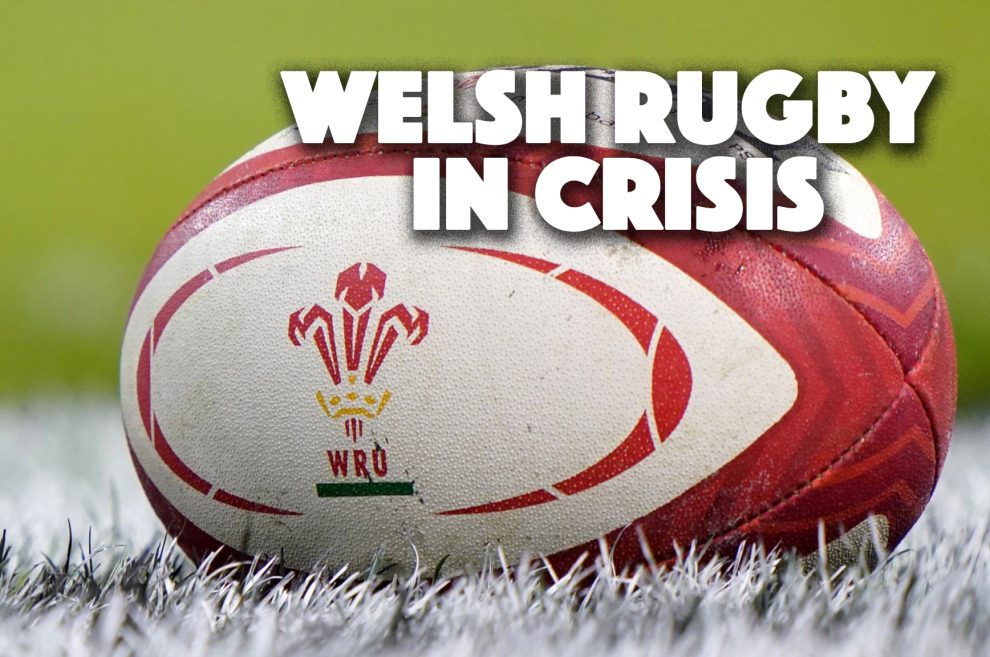Welsh rugby is in crisis. The national team has lost a record-breaking 17 games in a row, falling to 12th in the world rankings, its lowest position ever. Meanwhile, Wales’ four professional clubs—Cardiff, Dragons, Ospreys, and Scarlets—are struggling to compete with teams from other countries.
Many former players, coaches, and experts believe the solution is to reduce the number of professional teams from four to three. The argument is simple: Wales does not have enough money or high-quality players to support four strong teams. Instead, they suggest merging two teams, which would allow for better funding, stronger squads, and improved results.
However, Abi Tierney, the Chief Executive of the Welsh Rugby Union (WRU), insists that keeping four teams is the best way forward. She believes that with the right funding and player development, Wales can recover without reducing the number of clubs.
But is she right? Or is the WRU risking the future of Welsh rugby—both at club level and internationally—by refusing to make tough decisions?
Why the struggles of Welsh clubs hurt the national team
1. Weak Club Teams = Weak National Team
A successful national team depends on strong club rugby. Most top international teams have strong domestic leagues that develop players, keep them fit, and prepare them for Test rugby.
For example:
- Ireland has four highly competitive provincial teams—Leinster, Munster, Ulster, and Connacht—who regularly win European trophies. As a result, Ireland has a well-drilled and battle-hardened national team that currently ranks among the best in the world.
- France and England have powerful club competitions where their best players play week in, week out at a high level before stepping up to international rugby.
- Even South Africa, which lost several Super Rugby teams due to financial struggles, made a decisive move to strengthen their best teams—and it paid off. The South African clubs that joined the United Rugby Championship (URC) are now thriving, and the Springboks won the last two World Cups.
In contrast, Welsh clubs are weak. They rarely win games in the URC or in Europe. This means that Welsh players are not playing at a high enough level week-to-week, which affects their performances when they step up to international rugby.
The recent 68-14 humiliation against England in Cardiff is a clear sign that something is badly wrong. The players looked physically outmatched, lacking confidence, and unable to compete—a direct consequence of struggling at club level.
2. Fewer teams would mean stronger Welsh players
Rugby is a squad-based sport, meaning teams need depth in every position to compete at the highest level. Right now, Welsh talent is spread too thinly across four weak teams.
- If Wales had only three professional teams, its best players would be concentrated into stronger squads, playing alongside higher-quality teammates and against better opposition every week.
- This would raise the overall standard of Welsh rugby, preparing players more effectively for international matches.
Instead, by keeping four teams, the WRU is watering down the talent pool, ensuring that no team is strong enough to compete with the best.
3. Financial struggles mean Wales can’t keep its best players
One of the biggest reasons for Wales’ decline is that top Welsh players are leaving to play in England, France, and even Japan because those leagues pay far more.
- Players like Dan Biggar, Liam Williams, Tomas Francis, and Will Rowlands have all left Welsh rugby in recent years for bigger paychecks elsewhere.
- Young talents like Max Llewellyn and Joe Hawkins are moving abroad before even establishing themselves in Wales.
Why is this happening? Because Welsh clubs don’t have enough money to offer competitive salaries.
If Wales reduced to three teams instead of four, the WRU could pay its top players more competitively, making it easier to keep them in Wales.
Right now, the four-team system means:
- Not enough money to pay competitive wages.
- More players leaving Wales to play in stronger leagues.
- Weaker club teams, which means less preparation for international rugby.
This cycle of decline is making the national team weaker every year.
4. Player development is suffering
Strong national teams need high-quality youth development systems to produce the next generation of international players.
- Ireland has a well-structured pathway, ensuring young players develop within strong provincial teams before stepping up to Test rugby.
- France has an outstanding youth development program, which has produced a wave of world-class players like Antoine Dupont.
In Wales, player development has been neglected for years. Young players are coming through underprepared, underdeveloped, and not ready for the physicality of international rugby.
If Welsh rugby reduced to three teams, those teams would:
- Have stronger coaching setups to develop young players properly.
- Be more competitive, giving young players more experience in high-pressure games.
- Have better resources and facilities, ensuring players physically develop at the same rate as their international rivals.
Without this, Wales will continue falling behind in the global game.
What does WRU CEO Abi Tierney say?
Despite all these concerns, Abi Tierney insists that four teams can work.
She argues that:
- With the right investment, Welsh clubs can improve.
- Cutting a team would be disruptive and take too long.
- Youth development will eventually improve under the new plan.
However, critics argue that these changes will take too long, and Wales doesn’t have time to wait—drastic action is needed now to stop the sport from declining further.
What happens next?
If Welsh rugby continues on its current path, the problems may only get worse. The national team is already at its lowest point in history, and without strong club teams to develop talent, things may not improve.
The WRU must decide whether to:
- Stick with four teams and hope things improve over time, OR
- Make a tough decision now to reduce to three teams and rebuild Welsh rugby from a stronger foundation.
Many fans and experts believe reducing to three teams is the only way to save Welsh rugby. But for now, the WRU is standing firm on its decision to keep four teams.
With another difficult season ahead for both the clubs and the national team, the pressure on Tierney and the WRU is only going to increase. If results don’t improve soon, they may be forced to reconsider their position—or risk Welsh rugby falling even further behind.
Final thoughts
For Welsh rugby to survive and thrive, bold decisions may be needed. The choice between sticking with the status quo or making tough structural changes will determine the future of the sport in Wales.
If the WRU makes the wrong decision, the consequences could be disastrous—both for Welsh clubs and for the national team.
Fans can only hope that whatever decision is made, it leads to better days ahead for Welsh rugby.














